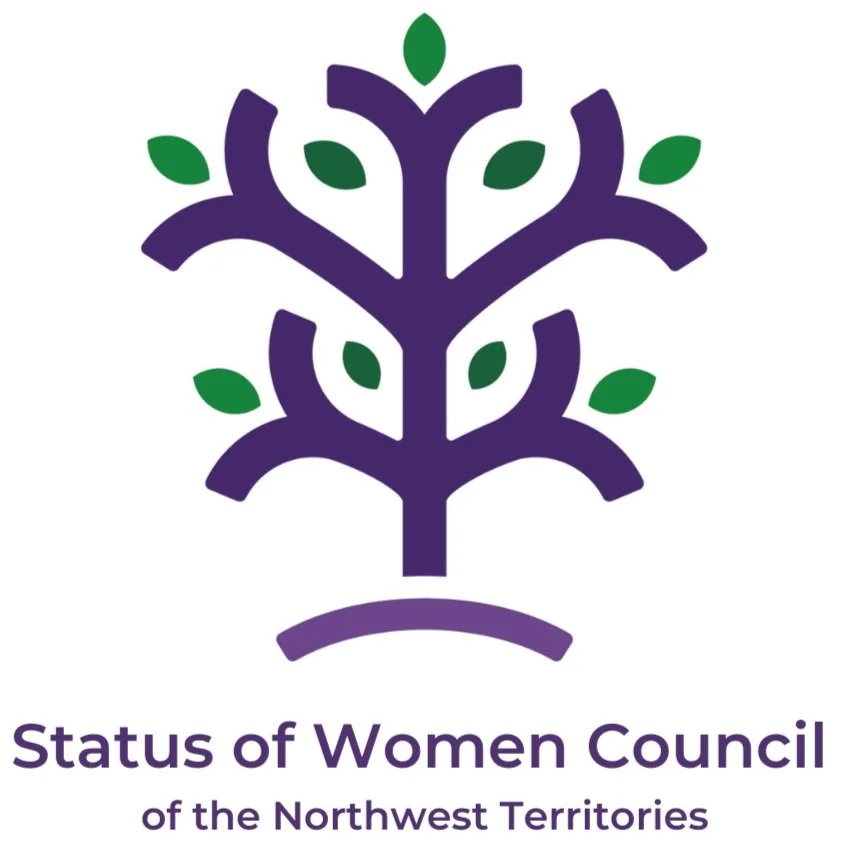Gender and Politics
2021 Federal Election
Keep gender equity on the table - connect with your candidates
During the election campaign, candidates might knock on your door, call you, or attend community events. This is a great time for you or your staff, volunteers and supporters to ask about gender equality and social justice issues.
Here are a few questions that your staff, volunteers and supporters could ask about gender equality and social justice:
1. How will you demonstrate your support for INSERT AN ISSUE THAT YOU ARE PASSIONATE ABOUT HERE, which is more important than ever during a pandemic?
2. If elected (or re-elected), what will be your top priorities to support the health, rights and well-being of women and gender-diverse people?
3. Have you met with organizations in our riding, such as [insert local organization], to learn more about the great work they are doing to advance the health, rights and well-being of women and gender-diverse people?
4. The NWT had the highest rates of sexual violence in Canada in 2019 and yet, we do not have specialized services. Women are more likely to report being sexually assaulted than men; sexual violence is a gendered issue. For more information about how politicians and governments can address sexual violence, please read this brief Sexual Violence: A Federal Election issued by the Ending Violence Association of Canada - in English and in French. Priority areas are: ensuring services for survivors; holding institutions accountable; amplifying voices; obtaining justice; changing attitudes; and building safe environments.
Territorial Elections
The Status of Women Council of the NWT is committed to helping women achieve equality. We believe it is important that women's voices are heard and represented in the political domain; that women are at the table, informing legislation, priority setting, resource allocation through the budget, and so much more.
2019 Territorial election
We were delighted with the results of the territorial election. Nine women were elected which is the most women ever elected to the Legislative Assembly in the NWT and it means we have almost achieved gender-balance as women will represent 47% of the 19th Legislative Assembly. The NWT is now an example to the country as we have the highest proportion of women legislators in Canada. Additionally, the election of these women sends a message to girls and young women that they too can become leaders.
We believe that having more women at the table will result in a different conversation and more collaborative approach in the Legislative Assembly. Women’s voices and priorities will be represented and heard in the Legislative Assembly and as such, we are expecting the 19th Legislative Assembly to have different priorities and adopt a different way of doings things from the past.
Territorial election questions and answers
We posed 3 questions to all of the MLA candidates in the 2019 election; please follow this link for our questions & the answers from the candidates.
2015 Territorial Election Forum
Here is the online livestream from November 17, 2015 for the all YK Candidates forum.
We also asked all Candidates their opinion on two questions. Their responses can be found here.
2011 Territorial Election Forum
Here is the online livestream from September 27, 2011 for the all YK Candidates forum.
We also asked all Candidates their opinion on three questions. Their responses can be found here. Late responses can be found here.
Here are the questions we want answered in relation to women and the economy
Questions for NWT Candidates in the 2021 Federal Election
1. Different communities in Canada have been impacted in various ways by the COVID-19 pandemic. In the recent Speech from the Throne, the Government of Canada recognized the challenges faced by women-owned businesses and identified the need to address economic inequalities. Nearly three-fifths of businesses majority-owned by women (56.0%) saw a decline in revenue in August 2020. Compared with 2019, their revenue decreased while their level of spending stayed the same. Businesses majority-owned by women were more likely to lay off a larger proportion of their workforce and to rehire 50% or more of their laid-off employees as well as having more of their workforce working remotely. How will your party help businesses majority-owned by women, especially those who have demonstrated resilience and a commitment to their workforce during the pandemic?
2. The COVID-19 pandemic has set working women in Canada back significantly as the female labor-force participation rate is at its lowest level in 30 years, according to the Royal Bank of Canada (RBC). The term "she-cession" was coined in 2020 to describe the disproportionate impact of the COVID-19 pandemic on women in the Canadian workforce. Jobs hardest hit by closures during the pandemic—such as childcare, education, hospitality, restaurants and tourism—often are filled by women. How does your party intend to counter this she-cession and increase female labour force participation?
3. Rates of depression and anxiety are rising among Canadians. They're nearly double for Canadian mothers and higher for mothers who are Black, Indigenous or other women of color. Companies looking to return their women employees to the workplace—and maximize their talents when they get there—will need to consider how they can support women from a mental health and well-being perspective. How will your party help employers address this?

